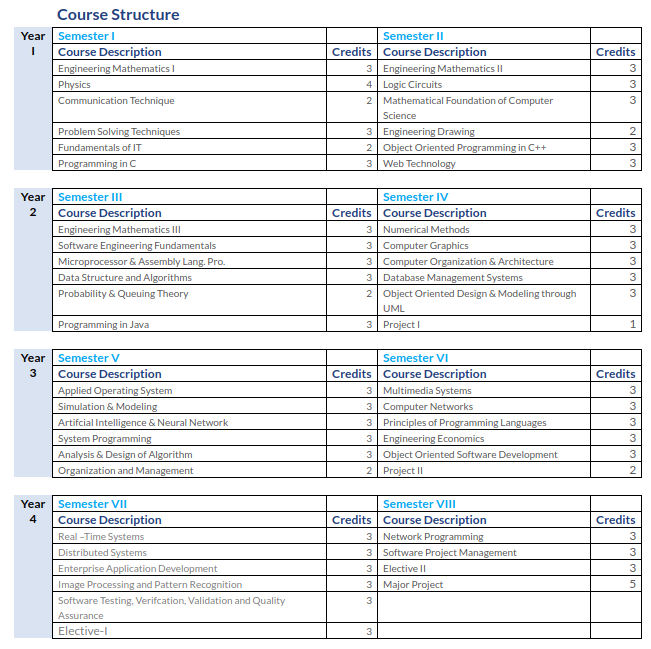The most of the important event occurred in the course of
negotiation on Climate Change are mention below:
1972 - United Nations Conference on Human
Environment in stockholon i.e. 1st UN Environment Conference (UNEP). The United
Environment Programme is formed as a result here.
1975 - First talk of Global Warming: US
scientist Wallace Broceker put the term "Global
Warming" into the public domain in his scientific paper climate change.
1979 - 1st World
Climate Conference (WCC) takes place.
1988 - World Meteorological Organization (WMO)
and UN Environment Programme (UNEP) establish the Intergovernmental Panel on
Climate Change (IPCC).
1990 - The IPCC release the 1st assessment
report saying "emissions resulting from human activities are substantially
increasing the atmospheric concentrations of greenhouse gases leading to calls
by IPCC and the second World Climate Conference for a global treaty.
It has concluded that temperature
have risen by 0.3 – 0.6 Degree Centigrade over the last century because of
human activity.
Dec 11, 1999- The
UN General Assembly establishes the Intergovernmental Negotiating Committee (INC)
for Framework Convention on Climate Change.
1992 - Rio de
Earth Summit in Brazil.
The text of the UNFCCC is adopted
at the United Nation Headquarters in New York.
Jan 1992- UNFCCC
open for signature at Rio Earth Summit. It was major United Nations Conference
held in Rio de Janerio from 3 to 14 June 1992.
 |
| Agreement between Parties for curbing global warming within 2 degree centigrade |
1994 - The UNFCCC spawned two years earlier in
Rio, enters into force in March 1994. Countries which sign the treaty are known
as Parties. With 196 parties, the UNFCCC
has near universal membership. Parties meet annually at the Conference of the Parties
(COP) to negotiate multilateral response to climate change.
1995 - First Conference of Parties (COP 1) had
in Berlin Germany. At COP 1 Parties agreed that commitments in the convention
were inadequate for meeting Convention objectives.
- IPCC release second assessment
report and suggest evidence of "discernible human influence" on the
earth's climate.
1996 - In July 1996 Conference of Parties II
was held in Geneva. UNFCCC Secretariat is setup to support action under the
convention.
1997 - December 1947, Kyoto Protocol Adapted.
The third Conference of Parties (COP 3) achieves a historical milestone with
adoption of the Kyoto Protocol, the world first greenhouse gas emissions
reduction treaty. The world main goal of the Kyoto Protocol is to control the
emissions of the human emitted GHGs in ways that reflects underlying national
differences in GHGs emissions wealth and capacity to make the reductions. The
treaty follows the main principles common but differentiated responsibilities.
1998 - COP 4 was held in Buenos Aires,
Argentina. Parties adopted the Buenos Aires plan of Action allowing a two year
period to develop mechanisms for implementing the Kyoto protocol.
1999 - COP 5 was
held in Bann, Germany. According to the UNFCCC, Parties continued negotiation
efforts with a focus on the adoption of the guidelines for the preparation of national communication by (developed) countries capacity building, transfer of
technology and flexible mechanism.
2000 - COP 6 – Part I was held in Hague,
Netherland negotiations faltered and parties agreed to meet again.
COP 6 – Part II was held in Bann,
Germany. Consensus was reached on what called the Bann Agreement.
2001 - COP 7 was
held in Marrakesh Noroco. This would formalize agreement on operational rules
for International Emissions Trading. The Clean Development Mechanism (CDM) and Joint Implementation along with a compliance regime and accounting procedures.
2001 - COP 8 was held in Delhi, India. Parties
adopted the Delhi Ministerial Declaration that among other things called for
developed countries to transfer technology to developing counties.
2003 - COP 9 was held in Milan, Italy. New
emission reporting guidelines based on IPCC recommendations were adopted.
2004 - COP 10 was
held in Buenos Aires, Argentina.
2005 - Kyoto Protocol
came in force. COP 11/CMP 1 were held in Montreal Canada.
2006 - COP 12/CMP 2 were held in Nairobi,
Kenya. Financial mechanisms were reviewed and further decisions were made about
the special climate change fund. Clean Development Mechanism opens in January
2006.
2007 - COP 13/CMP 3 were held in Bali, COP
parties agreed to a Bali action plan to negotiate GHGs mitigation actions after
the Kyoto protocol expires in 2012.
2008 - COP 14/CMP
4 were held in Poznan, Poland. Countries began negotiations on the financing
mechanism to help poor countries adopt to the effects of climate change.
2009 - COP 15 was held in Copenhagen, Denmark.
It failed to reach agreement on binding commitments after the Kyoto Protocol
Commitment period ends in 2012.
2010 - The 16th Conference of the parties
results in the agreements, comprehensive package by governments to assist
developing nations in dealing with climate change. Parties also agreed for
curbing global warming within 2 degree centigrade.
2011 - November to December – COP 17 was held
in Durban South Africa. Parties agreed to the Durban platform for Enhanced
action which framework to establish a new international emission reduction
protocol.
2012 - COP 18 was held in Doha, Quarter. Parties
agreed to extend the expiring Kyoto Protocol, creating a second commitment
phase that would begin on January 1, 2013 and end December 31, 2020.
2013 - COP 19 was held in Warsaw Poland. Parties
were expected to create a road map for the 2015 COP in Paris where a legally
binding treaty to reduce GHGs emissions is expected to be finalized (in order
to come into effect in 2020).
2014 - COP 20 was
held in Lina, Peru in December 2014.
2015 - Parties meet from November 28 to
December 12 and agreed to avoid temperature rise beyond 2 degree centigrade.
2016 - COP 22/ the Conference of Parties
serving as meeting of Parties of Kyoto Protocol (CMP 12 and the 1st session of
Conference of the Parties to Paris Agreement (CMAI) were held in Bab Ighli,
Marrokech, Morocco from 7 – 18 November 2016.
The Conference successfully demonstrated
to the world that the implementation of the Paris Agreement is underway and the
constructive spirit of multilateral co-operation on climate change continues.
2017 - The 23rd session of the Conferences of
Parties (COP 23) to the UN Convention of Climate Change (UNFCCC) will be organized
by Fiji and hosted at the headquarters of the UNFCCC Secretariat in Bann,
Germany in 6-17 November 2017.










